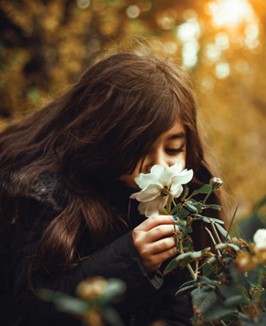Dr. Adrian Letz is an allergy and immunology physician treating individuals to manage their symptoms and improve their quality of life through personalized care plans, patient education, and the latest advancements in allergy and immunology treatments. In the following article, Dr. Adrian Letz reviews some of the most common myths about spring allergies, providing accurate information to help you better understand and manage your symptoms.
Spring is a season of renewal and growth, but for many people, it's also a time of sneezing, itchy eyes, and runny noses. Spring allergies are a common problem, affecting millions of people worldwide. Despite the widespread prevalence, there's a surprising amount of misinformation surrounding them, leading to confusion about what triggers these reactions and how to effectively manage symptoms.
For allergy sufferers, spring can be synonymous with discomfort, as blooming flowers, budding trees, and growing grass release pollen into the air. While it's well-known that pollen is a major trigger for allergies, the specific types and their impact vary by region, making it important for individuals to understand what allergens are most prevalent in their area.
Additionally, other environmental factors like fluctuating temperatures and increased humidity can exacerbate allergic reactions. This can create a perfect storm of symptoms that can range from mildly annoying to severely disruptive, affecting daily activities, work productivity, and overall quality of life.
Dr. Adrian Letz Highlights Myth 1: Allergies Only Happen in the Spring
A common misconception is that allergies only occur during the spring when trees and plants bloom. However, allergies can happen year-round. Spring allergies are typically triggered by pollen from trees, but there are also summer allergies caused by grass and weeds, fall allergies from ragweed, and winter allergies from indoor sources like dust mites and pet dander. It's important to identify your specific triggers to effectively manage your symptoms.
Myth 2: Pollen Is Only a Problem Outdoors
Many people believe that pollen is an outdoor problem that dissipates when you're indoors. Unfortunately, pollen can easily enter your home through open windows, doors, and on your clothing or pets. Dr. Adrian Letz says to reduce indoor pollen exposure, keep windows closed during high pollen seasons, use air conditioning with a clean filter, and change clothes after spending time outside. A
HEPA air purifier can also help filter out pollen and other airborne allergens from indoor air.
Myth 3: Local Honey Can Cure Allergies
One of the most enduring myths is that consuming local honey can cure allergies by exposing your immune system to small amounts of pollen. However, Dr. Adrian Letz reviews that there's little scientific evidence to support this claim. Most of the pollen that causes spring allergies comes from wind-pollinated plants, whereas honey is typically made from insect-pollinated plants. While honey might have other health benefits, it shouldn't be relied upon as a cure or treatment for allergies.
Myth 4: Allergy Symptoms Are the Same for Everyone
While many people experience similar allergy symptoms like sneezing, congestion, and itchy eyes, not everyone has the same experience. Allergy symptoms can vary widely in intensity and presentation, depending on the individual and the specific allergens involved. Some people may also experience less common symptoms like headaches, fatigue, and skin rashes. Understanding your
unique allergy profile can help you find the most effective treatment.
 Myth 5: Antihistamines Are the Only Effective Treatment
Myth 5: Antihistamines Are the Only Effective Treatment
Dr. Adrian Letz explains that antihistamines are a common treatment for allergies, but they're not the only option. Decongestants can help with nasal congestion, nasal corticosteroids can reduce inflammation, and leukotriene modifiers can prevent allergy symptoms. Additionally, immunotherapy, such as allergy shots or sublingual tablets, can help desensitize your immune system to specific allergens over time. A combination of treatments, along with preventive measures, may be necessary to effectively manage your allergies.
Myth 6: Rain Eliminates Pollen
Many people believe that rain washes away pollen, providing relief from allergies. While rain can temporarily reduce airborne pollen levels, it can also increase pollen production in the days following a storm. This is because rain stimulates plant growth and causes plants to release more pollen. Additionally, mold spores, another common allergen, can thrive in damp environments created by rain. Allergy sufferers should monitor weather patterns and be prepared for fluctuations in pollen levels.
Myth 7: Allergies Are Just a Minor Inconvenience
Some people downplay the impact of allergies, considering them a minor inconvenience. However, allergies can significantly affect quality of life, leading to sleep disturbances, decreased productivity, and reduced participation in outdoor activities. Allergies can also exacerbate other health conditions, such as asthma. It's important to take allergies seriously and seek appropriate treatment to improve your well-being and prevent complications.
Conclusion
Dr. Adrian Letz reviews that spring allergies are a common concern, but misconceptions can lead to ineffective management and unnecessary discomfort. Debunking these common myths with more accurate information can help individuals understand and navigate the complexities of spring allergies. Remember that allergies can occur year-round, pollen can enter your home, and there are multiple treatment options available beyond antihistamines.
If you're experiencing allergy symptoms, consult with an allergist or healthcare professional to determine the specific allergens affecting you and develop a personalized treatment plan. With the right information and a proactive approach, you can enjoy the beauty of spring without being overwhelmed by allergies.
 Myth 5: Antihistamines Are the Only Effective Treatment
Myth 5: Antihistamines Are the Only Effective Treatment